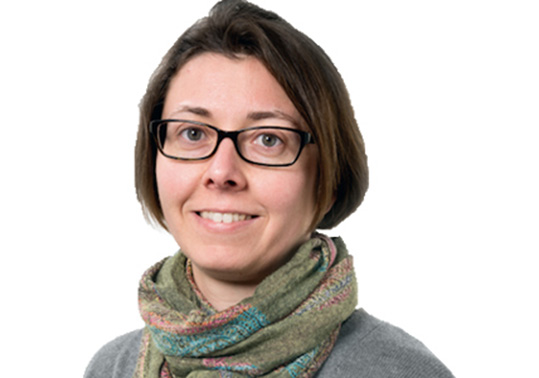
On the occasion of the International Day of Women and Girls in Science, the Centre for Biomedical Research Network (CIBER) recognizes the research work of a professor María de Carmen Gómez Cabrera, among 11 other scientists.
Full university professor at the Department of Physiology of the Faculty of Medicine at the Universitat de València, Gómez Cabrera, is a researcher at the thematic area of CIBER for Fragility and Healthy Aging (CIBERFES). The professor often appears as a collaborator in many prestigious international journals and has over 95 scientific publications. Within the framework of a multidiscipline FreshAge project, her research centers on the study of cell signaling in a skeletal muscle induced by physical exercise, oxidative stress, molecular mechanisms resulting from sarcopenia and fragility, as well as the benefits of physical activity to healthy aging.
Recognition of the research work has brought about international awards, like Catherine Pasquier Award (2014) granted by the Society for Free Radical Research Europe, as well as the national ones such as García Blanco Medal awarded by the Valencian Foundation of Higher Studies in 2004.
On 11th February, the Day of Women and Girls in Science, Gómez Cabrera appears as one of the most outstanding researchers among 11 other young scientists. CIBER also mentions that the majority of these female researchers are no older than 40 and, yet, stand in international rankings, undertake important projects, or develop new lines of research to prevent many diseases and improve lives of patients. About 74% of employees at CIBER are women. Undoubtedly, their career progress is often much slower than the one of men, which leads to the so-called scissor effect at the majority of research centers. For this reason, one of the priorities of CIBER is to help women take over leadership positions.
Other leading female scientists acknowledged by the center are Elena Aznar from Universitat Politècnica de València; Mònica Guxens, an expert in Preventive Medicine and Public Health and a director of the Project INMA (Environment and Childhood) of the CIBER center for Epidemiology and Public Health (CIBERESP); a chemist Susana Carregal, an expert in Nanotechnology and its medical application and a CIBER researcher of respiratory diseases; Virginia Hernández Gea, and expert of the CIBER center for Hepatic and Digestive Diseases. Among others there are Paula Río, an expert in gene therapy and editing in case of Fanconi anemia and a researcher of rare diseases at CIBER; Andreea Ciudin, a scientific expert in diabetes and obesity and an endocrinologist at the University Hospital Vall d'Hebron Research Institute; Arantxa González, a researcher of cardiovascular diseases at CIBER and of heart failure at the Center for Applied Medical Research of the University of Navarra; Estefania Toledo, an educator and a leading researcher of the benefits of the Mediterranean diet to cardiovascular health; Joana Vidal, a medical oncologist and a cancer researcher at the Hospital del Mar; and Inés Ibarra-Lecue, the youngest of the eleven scientists and a member of the neuropsychopharmacology group at the University of the Basque Country. Her study examines the effect of cannabis consumption in adulhood on the chances of psychosis and schizophrenia.
















